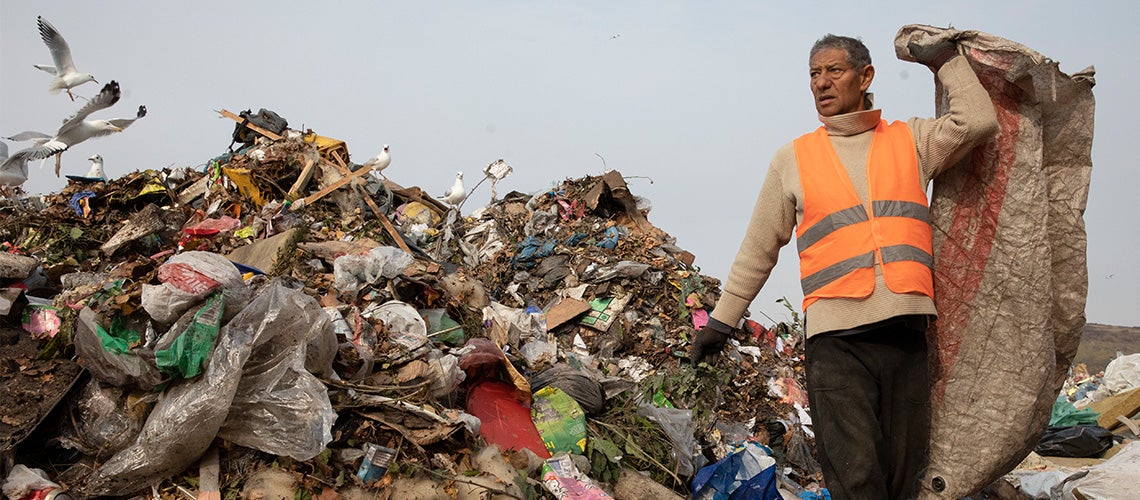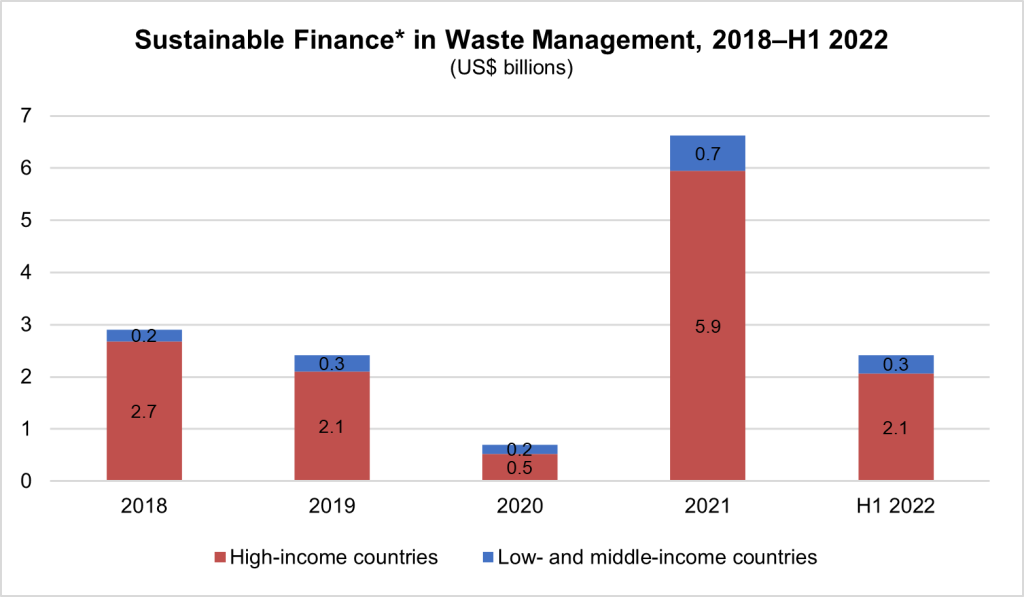 Waste picker in Serbia
Waste picker in Serbia
At the onset of the COVID-19 pandemic and with little warning, municipalities suddenly faced unique waste management challenges: massive upticks in daily waste volumes combined with curtailed garbage collection and cutbacks in recycling. While workplace waste production fell at the pandemic’s height, household waste rose to a degree that offset the decrease in commercial waste. With the exponential increase in the number of ill patients needing treatment, medical waste volumes surged as well.
Regions with poor waste management infrastructure were least able to handle the rapid influx of additional waste, which in many cases overwhelmed existing dump sites or landfills, amplifying negative environmental and social impacts.
Against this backdrop, the waste management industry is responding with ingenuity, creativity, and resilience. Consider the novel solution implemented by an IFC client—a private provider of waste solutions in the Gulf Cooperation Council (GCC) region. The company partnered with a hard-hit municipality to deploy idled street-sweeping equipment for a new municipal disinfection program. They also scaled up a green thermal waste treatment, helping medical facilities cope with the sudden surge in hazardous medical waste during the pandemic.
And in India, another IFC client developed domestic waste collection production facilities to replace costly and hard-to-get imported equipment from Europe. In addition to enabling more efficient waste processing, with attendant public health, environmental, and citizen satisfaction benefits, the company gained a competitive advantage over others that relied on imports. Other companies are introducing technological innovations that enhance operational efficiencies, support the reuse and recycle tenets of the circular economy, reduce costs, and strengthen the resilience of waste management services.
Notable shifts in emerging market municipal mindsets are also leading to new interest in sustainable waste solutions. Newly prioritized efforts to boost sustainable waste management capacity include increasing municipal sanitation and waste management budgets and elevating the importance of employee health and safety standards.
While these efforts are good news, the scale of the challenge remains enormous. The waste sector will continue to experience pressure, with the total amount of waste generated globally expected to grow to 3.9 billion metric tons by 2050—a 73 percent increase from 2020. Currently, more than 90 percent of waste in low-income countries is either dumped in the open or burned.
Despite an 8 percent investment uptick in 2021, the waste sector struggles to structure bankable projects and attract financing, particularly in developing countries. Multiple factors inhibit investment, including budgetary constraints, limited technical capacity, insufficient user charges, and unconducive regulatory environments.
IFC is working to address these investment bottlenecks and promote sustainable solutions through a combination of investment and advisory offerings that advance the transition to circular waste management. Our track record spans investments throughout the waste supply chain. We can support projects in waste collection and transfer, recycling and re-processing, waste-to-energy, landfill disposal, sustainable dumpsite remediation, and more.

* Sustainable finance instruments include green bonds or loans, sustainability-linked bonds or loans, and sustainability bonds.
In addition to traditional debt and equity products, we leverage sustainable financing, including sustainability-linked instruments that incentivize the pursuit of sustainability targets by tying pricing to the achievement of measurable corporate environmental, social, and governance metrics (ESG).
Interest in sustainable financing has rapidly grown in recent years, with cumulative issuance globally surpassing the $4 trillion mark in 2021. However, our calculations indicate that only a fraction of this financing has gone to the waste sector—totaling $19.3 billion through the first half of 2022, of which only 11 percent went to developing countries.
Removing impediments to investment, operationalizing circular economy strategies, and better leveraging innovative financing instruments will be critical to enhancing sustainable waste management capacity in developing countries. All parties—governments, private sector, as well as local communities and development partners—have a role to play.
In 2020-2021, IFC released a series of COVID–19 infrastructure sector notes providing short analyses on the impact of the pandemic on different infrastructure sectors and proposing recommendations for an effective response. The series included a publication focusing on COVID-19's Impact on the Waste Sector.
RELATED LINKS



Join the Conversation